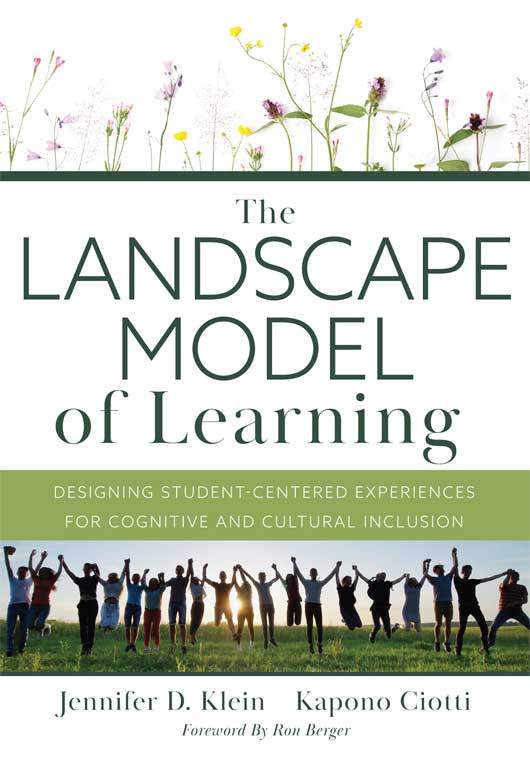Free Reproducibles
Landscape Model of Learning
Designing Student-Centered Experiences for Cognitive and Cultural Inclusion
Implement culturally responsive teaching and improve your school culture. By applying the research-based teaching strategies found in this essential guide, you will learn how to create a more meaningful and inclusive learning ecosystem.
Benefits
- Retire the inadequate goal of access and move education toward the higher and more urgent, equitable goal of helping every student reach their highest possible level of individual success.
- Embrace the concept of inclusive prosperity, which goes beyond diversity to accepting and supporting all students—their experiences, gifts, and challenges—to build communities where all students belong and thrive.
- Receive practical, research-based strategies for developing agency and engagement so that students become the protagonists of their own journeys through the learning ecosystem.
- Design systems for student protagonism by implementing student-centered strategies for cognitive and cultural inclusion.
- Obtain reproducible tools to deepen understanding and implementation of the material.
- Learn how to successfully implement the model despite common hurdles and potential challenges, such as traditional academic contexts and economically disenfranchised schools.
Table of Contents
Introduction: Why Are We Here?
Part 1: Understanding the Landscape Model
Chapter 1: The Landscape Model’s Three Elements
Chapter 2: Eight Guiding Principles
Part 2: Implementing the Landscape Model
Chapter 3: The Ecosystem
Chapter 4: The Horizon
Chapter 5: The Pathway
Part 3: Leading the Landscape Model
Chapter 6: Student Growth Assessment on the Landscape
Chapter 7: Challenges of Implementation
Chapter 8: Landscape Model Implementation for Long-Term Success
Chapter 9: Opportunities for the Future
Epilogue: Why This Work Matters
Appendix
REPRODUCIBLES
Chapter 2
Chapter 4
Chapter 5
Chapter 8
- Figure 8.2: Eight Topics to Include in the Arc of Professional Learning
- Figure 8.5: Impact Evaluation for Students in Grades 3–12
- Reflection and Discussion Tool for Teachers on the Landscape
- Reflection and Discussion Tool for School Leaders on the Landscape
- Landscape Model of Learning: Three-Year Plan Development
Chapter 9
SUGGESTED RESOURCES
Books
- Conzemius, A. E., & O’Neill, J. (2014). The handbook for SMART school teams: Revitalizing best practices for collaboration (2nd ed.). Bloomington, IN: Solution Tree Press.
- Klein, J. D. (2017). The global education guidebook: Humanizing K–12 classrooms worldwide through equitable partnerships. Bloomington, IN: Solution Tree Press.
Websites
Chapter 1
Chapter 3
- CliftonStrengths
- DiSC
- The Kiersey Temperament Sorter
- True Colors
- GLSEN
- Iceberg Model
- American International School in Egypt
Chapter 4
- The What School Could Be Innovation Playlist
- Portrait of a Graduate
- Mid-Pacific Institute in Honolulu, Hawai’i
Chapter 5
Chapter 6
Chapter 7
Chapter 8

